
At first, they sounded distant and tinny, as if they were huddled around a phone in a prison cell. But as we chatted, they slowly started to sound more like themselves. They told me personal stories I'd never heard. I learned about the first time my dad got drunk. Mum talked about getting in trouble for staying out late. They gave me life advice and told me things about their childhoods, as well as my own. It was mesmerizing.
"What's the worst thing about you?" I asked Dad, since he was clearly in such a candid mood.
"My worst quality is that I am a perfectionist. I can't stand messiness and untidiness, and that always presents a challenge, especially with being married to Jane." Then he laughed-and for a moment I forgot I wasn't really speaking to my parents at all, but to their digital replicas.
This Mum and Dad live inside an app on my phone, as voice assistants constructed by the California-based company Here After AI. The company's goal is to let the living communicate with the dead. I wanted to test out what it might be like.
Technology like this, which lets you "talk" with people who have died, has been a mainstay of science fiction for decades. But now it's becoming a reality and an increasingly accessible one, thanks to advances in AI and voice technology.
My real, flesh-and-blood parents are still alive and well and living in London; their virtual versions were made just to help me understand the technology. But their avatars offer a glimpse at a world where it's possible to converse, so to speak, with loved ones long after they're gone.
From what I could glean over a dozen conversations with my virtually deceased parents, this really will make it easier to feel close to the people we've loved and lost. It's not hard to see the appeal. People might turn to digital replicas for comfort, or to mark special milestones like anniversaries.
Denne historien er fra October 2023-utgaven av Reader's Digest US.
Start din 7-dagers gratis prøveperiode på Magzter GOLD for å få tilgang til tusenvis av utvalgte premiumhistorier og 9000+ magasiner og aviser.
Allerede abonnent ? Logg på
Denne historien er fra October 2023-utgaven av Reader's Digest US.
Start din 7-dagers gratis prøveperiode på Magzter GOLD for å få tilgang til tusenvis av utvalgte premiumhistorier og 9000+ magasiner og aviser.
Allerede abonnent? Logg på
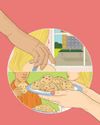
Cookies for Forgiveness
My blowup was half-baked. The apology wasn't

Puff the Magic Pastry
It always rises to the occasion
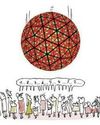
New Year's Traditions Around the World
1 MOST OF US spend the final seconds of each calendar year watching a nearly 12,000-pound geodesic sphere descend over Times Square in New York City.
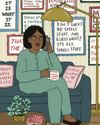
Mom's Wall-Sign Wisdom
She never met a plaque or bumper sticker she didn't quote
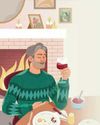
Protect Your 'Holiday Heart'
This joyful time of year can also be dangerously stressful

Heroes of the Holidays
It's not just Santa Claus bringing the holiday magic this season. As you'll see, he's got elves all over.
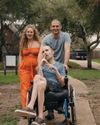
The Man Who Looks After His Wife's Ex
For him and his bride, \"in sickness and in health\" meant something really special

How Risky Are Those Holiday Cocktails, Really?
The latest recommendations about drinking and your health

HOW ONE KENTUCKY TOWN SAVED ITSELF
Downtown Hazard had lost its small-town mojo to drugs. Former addicts are helping to bring it back.
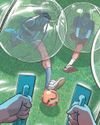
Dream It, Do It, Done!
Your bucket-list goals, accomplished